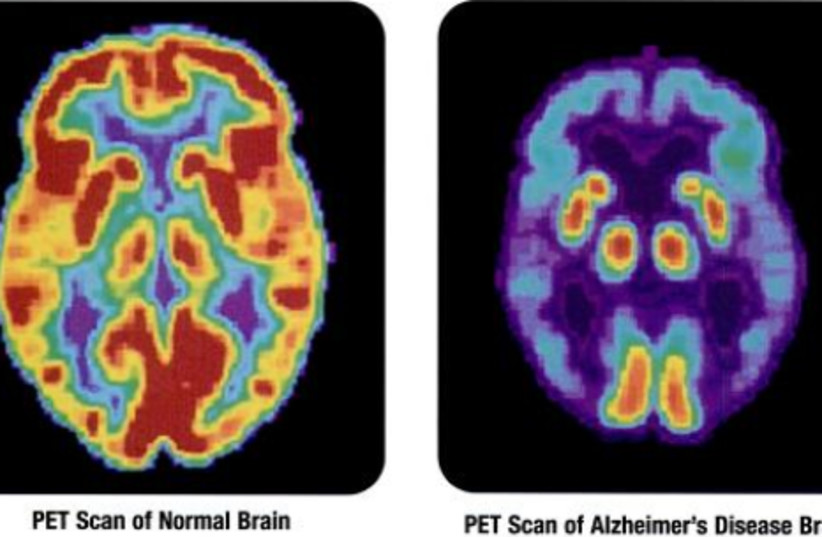A new study at Tel Aviv University could provide hope for early diagnosis and drug development for the most common form of late-onset dementia. The research found that a pathological brain activity precedes the onset of Alzheimer's first symptoms by many years: increased activity in the hippocampus during anesthesia and sleep, resulting from failure in the mechanism that stabilizes the neural network.
The researchers believe this discovery, published in the scientific journal Cell Reports, could lead the way to early diagnosis of the disease, which currently has no effective therapy.
The Israeli scientists used animal models for Alzheimer's, focusing on the hippocampal region of the brain, which plays a key role in memory processes and is known to be impaired in Alzheimer's patients. At first, they measured cell activity in the hippocampus when the model animal was awake, active and exploring its surroundings. For this they used advanced methods that measure brain activity at a resolution of single neurons.
The researchers decided to examine activity in the hippocampus in other states of consciousness - under anesthesia and during natural sleep.

"It is known that neuronal activity of the hippocampus decreases during sleep in healthy animals," according to doctoral student Refaela Atsmon, who led the study along with Prof. Inna Slutsky. "But when I examined model animals in early stages of Alzheimer's, I found that their hippocampal activity remained high even during sleep. This is due to a failure in the physiological regulation, never before observed in the context of Alzheimer's disease."
"According to the recent study published this month in the Lancet Public Health journal, the number of people with dementia worldwide will increase from 50 million in 2019 to more than 150 million in 2050, growing by about 370% in North Africa and the Middle East," Slutsky said. "In Israel, a 145% increase is predicted, compared to about 74% in Western Europe.
"This huge increase in the prevalence of Alzheimer’s, due to the expected rise in population growth and in life expectancy, will continue unless we develop effective treatments. This is clearly an alert for investing in dementia research and its most frequent form – Alzheimer’s disease,” she said.
"Innovative imaging technologies developed in recent years have revealed that amyloid deposits, a hallmark of Alzheimer's disease pathology, are formed in patients' brains as early as 10-20 years before the onset of typical symptoms such as memory impairment and cognitive decline," the professor said. "Unfortunately, most efforts to treat Alzheimer's disease by reducing the amount of amyloid-beta proteins and their aggregation have failed.
"If we could detect the disease at the pre-symptomatic stage, and keep it in a dormant phase for many years, this would be a tremendous achievement in the field. We believe that identifying a signature of aberrant brain activity in the pre-symptomatic stage of Alzheimer's and understanding the mechanisms underlying its development is a key to effective treatment.
"The results of our study may help early diagnosis of Alzheimer's, and even provide a solution for instability of neuronal activity in Alzheimer’s disease," Slutsky said.
"Firstly, we discovered that anesthesia and sleep states expose pathological brain activity in the early stages of Alzheimer’s disease, before the onset of cognitive decline. We also proposed the cause of the pathological activity – failure of a very basic homeostatic mechanism that stabilizes electrical activity in brain circuits. Lastly, we showed that a known medication for multiple sclerosis suppresses this type of anesthesia-induced aberrant brain activity."
